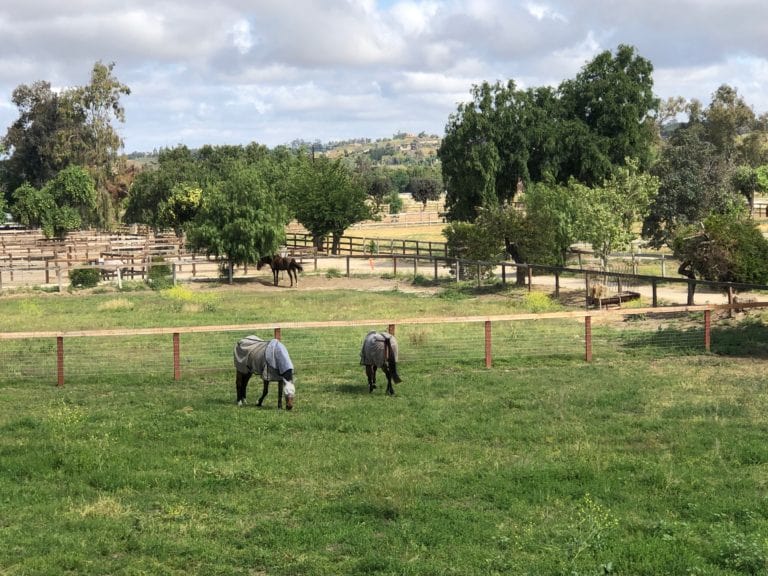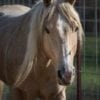When temperatures rise, all creatures on the planet are affected, and your rescue horse is particularly susceptible to heat-related issues. High temperatures can lead to dehydration, exhaustion, and heat stroke, all of which could result in severe illness or even death. It’s important to take preventative measures to keep your rescue horse cool at all times. Likewise, you must be familiar with the signs and symptoms of overheating, before heat exhaustion sets in. Our experts at Equis Save Foundation have tips to keep your rescue horse cool in the heat.
Pay Attention to Vital Signs
Being proactive is key to preventing heat-related problems. You can get ahead of the game by watching your rescue’s vital signs. Check the horse’s pulse. A high respiration rate that persists over 10 minutes is a warning sign. Look for changes in energy levels. A tired horse will be reluctant to move. Mucous membranes in the mouth should be slimy, not dry. Check the gums; they should be pink. Listen to the sounds of the horse’s abdominal region, gurgling noises are healthy and good. Any of these signs or other unusual changes could indicate that your horse is headed for heat exhaustion.
Hydration is Critical
Keeping your horse hydrated is the most efficient way to combat overheating. Make sure your horse has round-the-clock access to water in hot weather. If the horse has been denied water for a substantial amount of time, provide smaller amounts spread out over a couple of hours. And don’t believe the hype, it’s not true that a heat-stressed horse will get sick from drinking water. Water is good for your horse.
Keeping Your Rescue Horse Cool in the Shade
Keep your horse in a shaded area as much as possible. Prolonged exposure to ultra-violet (UV) radiation will put the horse at extreme risk of overheating. It’s also important for the shaded area to be well ventilated. Use a fan if the horse is in a barn, and always keep the windows of a horse trailer open.
Avoid Activity During Peak Heat Hours
Early mornings are cooler and the best time to ride your horse. If you’re competing in an event, consider skipping afternoon activities when temps are higher. Don’t push the horse during a ride. Give the horse plenty of breaks and of course, access to water in full shade.
More Water
Drinking water is critical to keeping the horse cool, but dousing the horse with cool water is also a great way to alleviate heat exhaustion. As the water evaporates it produces a continuous cooling effect that will lower the horse’s body temperature.








